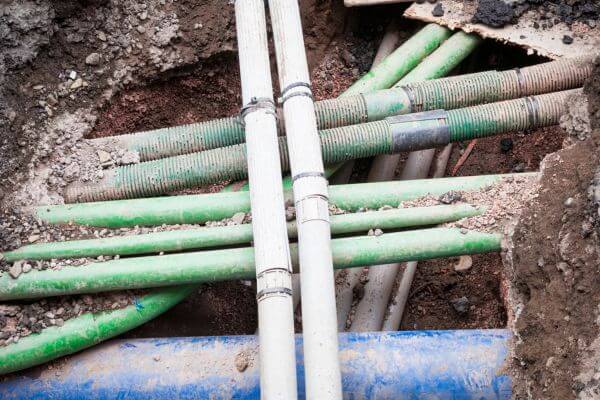How often should pipe maintenance be carried out?
There is no single rule, as it depends on the size of the community, the age of the building, and the use of its facilities. However, we can establish a series of general recommendations:
-
Annual inspections: visual or camera inspections that detect build-up or wear before it becomes a problem.
-
Regular preventive cleaning: from time to time, depending on the condition of the facilities, it is advisable to clean them with pressure washing equipment to remove encrusted residues.
-
Intensive maintenance in large communities: those with many residents, old pipes or hospitality establishments often require more frequent interventions.
👉 Inspecting domestic pipes is essential for anticipating potential faults.
Consequences of not maintaining pipes in communities
Many communities postpone maintenance until a blockage or breakdown occurs. This practice, although common, is not recommended because:
-
Traffic jams are becoming a regular occurrence.
-
Bad smells affect common areas and homes.
-
Increases the risk of leaks and dampness.
-
Insurance policies may exclude coverage due to lack of maintenance.
A real-life example can be found in studies by water management companies such as Canal de Isabel II, which highlight the importance of prevention in avoiding serious problems in sanitation networks.
Phases of pipe maintenance in communities
1. Initial inspection
High-definition cameras and specialised equipment are used to detect blockages, breaks, limescale build-up, or material wear.
2. Cleaning and disinfection
Pressurised water techniques are used to remove organic and inorganic waste that obstructs the flow of water.
3. Structural condition assessment
The pipe material is analysed and, if necessary, repair or replacement is recommended.
4. Regular maintenance plan
Scheduled inspections and cleanings are established to prevent problems from recurring.
👉 For urgent cases, our drain unblocking and pipe cleaning team is available 24 hours a day with specialised equipment.
Benefits of preventive maintenance in neighbourhood communities
-
Avoid costly breakdowns.
-
Improves the healthiness of the building.
-
Increases the service life of the installations.
-
Prevents dampness and leaks.
-
Improves neighbourly relations by reducing incidents.
👉 Having a maintenance contract ensures peace of mind and continuity in the care of your facilities.
Complementary services for communities
In addition to preventive maintenance, at Limpiezas Domingo we offer comprehensive solutions for communities, such as septic tank emptying, which is essential for ensuring hygiene and preventing overflows.
Frequently asked questions about pipe maintenance in communities
Is maintenance compulsory in all communities?
It is not always required by law, but it is highly recommended to ensure safety, hygiene, and avoid neighbourhood conflicts.
How often is a thorough cleaning recommended?
It depends on the age of the building and the number of dwellings, but it is usual to schedule cleaning every 1-2 years.
What happens if action is only taken in the event of a breakdown?
Blockages and leaks tend to recur, generating more expenses in the long term and inconvenience for neighbours.
Can maintenance be carried out without building work?
Yes. Nowadays, most interventions are carried out using pressurised water and inspection equipment, without the need for building work.
An investment in peace of mind
Pipe maintenance in neighbourhood communities is an investment in peace of mind, savings and quality of life. With a preventive plan, the community ensures clean, safe and durable facilities.
At Limpiezas Domingo, we have a team specialising in pipe maintenance for residential communities, with solutions tailored to every need. Our goal is to ensure efficient installations, prevent future problems and offer a reliable long-term service.
👉 Contact us and request a maintenance plan tailored to your community.

